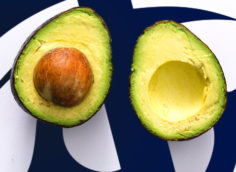Ingredients
- 1 cup sliced almonds
- 3 cups water (plus extra for soaking almonds)
- 1 tablespoon honey or agave (if you're a wuss)
- 1 teaspoon vanilla extract
- Pinch of kosher salt
Directions
- Place sliced almonds in a bowl and cover them with water. Set aside at room temp for 1 to 12 hours.
- Drain almonds and rinse. Combine almonds, 3 cups water, vanilla, and salt in a blender. Blend until smooth (about 2 minutes).
- Serve as is. It should last about 5 days in the fridge. Remember to stir before serving.
Wait, What's Wrong With Commercial Almond Milk?
The concept behind commercial almond milk is great. Take some fantastic tasting, nutrient-dense nuts, pulverize them, and then add water so that you have a lactose and largely allergen-free alternative with which to soak your Fruity Pebbles.
Too bad the actual version of almond milk, at least the industrial version, holds only a whiff of the promise of the conceptual version.
Sure, almond milk manufacturers start off with some almonds, but an entire carton generally contains the amount of almonds that can be held by one tiny, arthritic and gnarled old-lady hand. This little-bitty serving of almonds is pulverized, but then the manufacturers filter out all the fiber because it would settle to the bottom and thus require that customers shake the carton and everybody knows that shaking is for losers.
Given that the number of almonds they used is so meager, manufacturers are then obliged to add in nutrients like calcium and Vitamin E so they can boast, "50% more calcium than milk," and "50% RDI of Vitamin E." Adding vitamins back in is flat-out misleading. You'd almost rather have them strap a strip of vitamin pills on the side of the carton and advise you to take one with every serving of their concoction.
Then there's the protein, or lack of it. A serving of almonds contains about 6 grams of protein, but a serving of typical almond milk contains only one gram. Now if you drank the entire carton, you'd get about 6 grams, but again that's what you'd get from a single serving of whole almonds.
Sugar's an issue, too. The "original" flavor almond milk has about 7 grams of added sugar per serving while most vanilla flavored varieties have about 16 grams of added sugar. Yeah, yeah, cow's milk has about 13 grams of sugar, too, but at least the cow put it there instead of Stanley from Akron who sometimes can't tell if the white stuff he finds in his bandana after his shift is powdered sugar or dandruff.
One More Thing...
Manufacturers have to add thickeners like carrageenan to almond milk because when you grind up a single serving of almonds and add 32 ounces of water, it has the pale, watery, unappetizing look of goat semen. Adding it is understandable, but some of these thickeners have been implicated in gastrointestinal inflammation.
People are getting wise to these shenanigans, though. Just this past December, Blue Diamond Growers settled a class action suit with consumers who got all uppity about the company using the words "All Natural" or "Natural" on their almond milk labels when their product was anything but.
As a result of the suit, Blue Diamond can no longer use the word "natural" or the American Heart Association's "heart check mark" symbol on the cartons. They're also prohibited from using an image of two hands full of almonds on the label. Disappointingly, the settlement didn't require them to replace the image with one of two hands full of bullshit.




